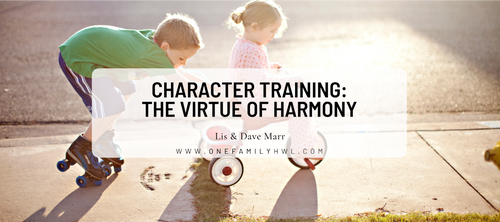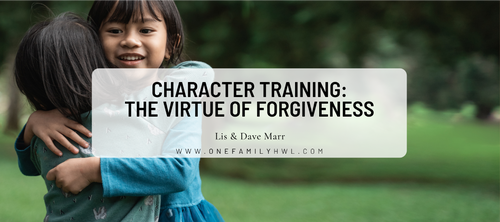May 26, 2023

Summertime Checklist
Parenting is a year-round process. However, we found that summertime seemed to be a really productive and effective time in our parenting. Maybe it was because many of the school year obligations and hectic schedules got dialed back and the excitement of sunshine, family vacations and barbecues filled our home. Whatever the reason, we used our summertime excitement as a special time of the year to “super charge” some of our parenting initiatives while enjoying the fun of the season.
After reading some of our Tuesday Letters, you know that we love setting goals, making to do lists, and charts. So it won’t surprise you to know that we have put together a Summertime Checklist of things you may want to consider initiating/revisiting as you head into summer.
We will briefly examine three key areas and offer some examples of how the checklist worked for us to give you some ideas for making your own summertime checklist. Even though we will provide you with many suggestions, we found it best to only focus on 1-2 things within each area. The idea is to enjoy your summer while intentionally working on a handful of initiatives with your children.
Initiate New Responsibilities
Depending upon our boys’ developmental age, we had several different responsibilities or family chores that we initiated over summer that would become a part of their “new normal” routine when school started back up in the fall.
Younger child – Setting and clearing the table, keeping their room uncluttered, getting ready for bed on their own (i.e – Changing into PJs, dirty clothes in the basket, brushing/flossing teeth, etc..)
Older child – Taking out the trash, loading/unloading dishwasher, putting away groceries, dusting, making bed, putting clean laundry in their own drawers
Middle years/Tween – Yard work, vacuum, help prepare meals, clean their own bathroom, do laundry
Teen – Watch younger siblings, wash cars, yard work with gas powered tools (i.e. Mowing, edging, etc…), fix a family meal (began with lunch then moved towards breakfast and dinner), get a summer job
TONIC Conversations
Summertime provided us with many opportunities for Tonic (Time Of Non-Conflict) conversations. These are conversations, not lectures, that would allow us time to casually discuss sensitive topics with our boys and see where their level of understanding was – which may or may not lead to more discussions. We would often initiate these discussions with a question to our boys to determine if further conversation or guidance was needed.
Younger child – With a younger child, our conversations would be more about measuring their moral understanding and development. Why do we choose to speak kind words? Why do use our manners even if others don’t use them? What’s the difference between tattling and sharing important information? Why is first time obedience important?
Older child – What makes words naughty or nice and why are we careful with our words? Why is lying wrong? It’s ok to be angry or frustrated sometimes, but what is the appropriate way to handle it? There was some unwise behavior at the pool, why don’t we behave that way?
Middle years/Tween – There has been some interesting talk about (sex, alcohol, smoking, drugs, new apps, etc…), what do you think about that? Why do you think having a relationship with us, built upon trust, is so important? Why do you think we go to church, pray and volunteer?
Teen –What are your thoughts on dating? What is stewardship and what areas do you think we should steward better? What do you think about college? What are the 3 biggest things that surprised, shocked, disturbed, or confused you this last school year? Why is our faith so important?
The questions you ask and how you frame them will be specific to each individual child depending upon their developmental age and gender. The sample questions we provided, hopefully, further demonstrates the conversational approach with such topics.
It’s also important to note that these conversations are typically ongoing and can last months or years as they mature cognitively and morally. For example, we may have discussed a particular topic early in the school year, but it may have a different feel and tone during the summer. Likewise, a conversation we may have initiated during summer may need to be addressed several times in the new school year.
Reinforce Family Identity
“Peer pressure on a child is only as strong as family identity is weak.”
– Gary Ezzo
Cultivating your family identity is an ongoing process that needs to grow and develop as your family grows and develops. For the Howards, summertime is a fun time to reinforce our family identity.
Family vacation – Enjoy each other and have fun! We told our boys the top 3 things to remember about vacation is 1) Have fun, 2) Have good manners and 3) Have good behavior. We would then go on to tell them that when they take care of number 2 and 3, # 1 will always be the result!
Family game/movie night – Because of our boys’ schoolwork and activities, we weren’t as consistent with family game during the school year as we were during the summer. And summer allowed us the time to do things we wouldn’t necessarily do during the school year. During the summer, we might set up a card table in our family room do a really hard puzzle; create a Lego village in our basement; have a marathon game of Monopoly over several nights; summer long Uno card tournament; taking turns selecting what movie or old tv shows (i.e Andy Griffith, Brady Bunch, Star Trek depending upon the boys’ age) we would watch.
Serve Together as a Family
Serve others together! Investing in the lives of others, as a family, is a rich and meaningful way to rejuvenate family bonds while experiencing many valuable life-lessons together. Summer provided fewer schedule conflicts and more opportunities to serve our community even when our kids were young. Here are some ideas to consider: https://www.somewhatsimple.com/family-service-ideas/
Being intentional in these three areas and identifying a couple things to work on, helped us to take big steps in our parenting process. And then by the end of the summer we had a wonderful sense of accomplishment because our boys learned new responsibilities, we had some meaningful conversations and had a lot fun as a family.
Have a great summer and blessings to your family,
Shelly and Rich
After reading some of our Tuesday Letters, you know that we love setting goals, making to do lists, and charts. So it won’t surprise you to know that we have put together a Summertime Checklist of things you may want to consider initiating/revisiting as you head into summer.
We will briefly examine three key areas and offer some examples of how the checklist worked for us to give you some ideas for making your own summertime checklist. Even though we will provide you with many suggestions, we found it best to only focus on 1-2 things within each area. The idea is to enjoy your summer while intentionally working on a handful of initiatives with your children.
Initiate New Responsibilities
Depending upon our boys’ developmental age, we had several different responsibilities or family chores that we initiated over summer that would become a part of their “new normal” routine when school started back up in the fall.
Younger child – Setting and clearing the table, keeping their room uncluttered, getting ready for bed on their own (i.e – Changing into PJs, dirty clothes in the basket, brushing/flossing teeth, etc..)
Older child – Taking out the trash, loading/unloading dishwasher, putting away groceries, dusting, making bed, putting clean laundry in their own drawers
Middle years/Tween – Yard work, vacuum, help prepare meals, clean their own bathroom, do laundry
Teen – Watch younger siblings, wash cars, yard work with gas powered tools (i.e. Mowing, edging, etc…), fix a family meal (began with lunch then moved towards breakfast and dinner), get a summer job
TONIC Conversations
Summertime provided us with many opportunities for Tonic (Time Of Non-Conflict) conversations. These are conversations, not lectures, that would allow us time to casually discuss sensitive topics with our boys and see where their level of understanding was – which may or may not lead to more discussions. We would often initiate these discussions with a question to our boys to determine if further conversation or guidance was needed.
Younger child – With a younger child, our conversations would be more about measuring their moral understanding and development. Why do we choose to speak kind words? Why do use our manners even if others don’t use them? What’s the difference between tattling and sharing important information? Why is first time obedience important?
Older child – What makes words naughty or nice and why are we careful with our words? Why is lying wrong? It’s ok to be angry or frustrated sometimes, but what is the appropriate way to handle it? There was some unwise behavior at the pool, why don’t we behave that way?
Middle years/Tween – There has been some interesting talk about (sex, alcohol, smoking, drugs, new apps, etc…), what do you think about that? Why do you think having a relationship with us, built upon trust, is so important? Why do you think we go to church, pray and volunteer?
Teen –What are your thoughts on dating? What is stewardship and what areas do you think we should steward better? What do you think about college? What are the 3 biggest things that surprised, shocked, disturbed, or confused you this last school year? Why is our faith so important?
The questions you ask and how you frame them will be specific to each individual child depending upon their developmental age and gender. The sample questions we provided, hopefully, further demonstrates the conversational approach with such topics.
It’s also important to note that these conversations are typically ongoing and can last months or years as they mature cognitively and morally. For example, we may have discussed a particular topic early in the school year, but it may have a different feel and tone during the summer. Likewise, a conversation we may have initiated during summer may need to be addressed several times in the new school year.
Reinforce Family Identity
“Peer pressure on a child is only as strong as family identity is weak.”
– Gary Ezzo
Cultivating your family identity is an ongoing process that needs to grow and develop as your family grows and develops. For the Howards, summertime is a fun time to reinforce our family identity.
Family vacation – Enjoy each other and have fun! We told our boys the top 3 things to remember about vacation is 1) Have fun, 2) Have good manners and 3) Have good behavior. We would then go on to tell them that when they take care of number 2 and 3, # 1 will always be the result!
Family game/movie night – Because of our boys’ schoolwork and activities, we weren’t as consistent with family game during the school year as we were during the summer. And summer allowed us the time to do things we wouldn’t necessarily do during the school year. During the summer, we might set up a card table in our family room do a really hard puzzle; create a Lego village in our basement; have a marathon game of Monopoly over several nights; summer long Uno card tournament; taking turns selecting what movie or old tv shows (i.e Andy Griffith, Brady Bunch, Star Trek depending upon the boys’ age) we would watch.
Serve Together as a Family
Serve others together! Investing in the lives of others, as a family, is a rich and meaningful way to rejuvenate family bonds while experiencing many valuable life-lessons together. Summer provided fewer schedule conflicts and more opportunities to serve our community even when our kids were young. Here are some ideas to consider: https://www.somewhatsimple.com/family-service-ideas/
Being intentional in these three areas and identifying a couple things to work on, helped us to take big steps in our parenting process. And then by the end of the summer we had a wonderful sense of accomplishment because our boys learned new responsibilities, we had some meaningful conversations and had a lot fun as a family.
Have a great summer and blessings to your family,
Shelly and Rich

























